News
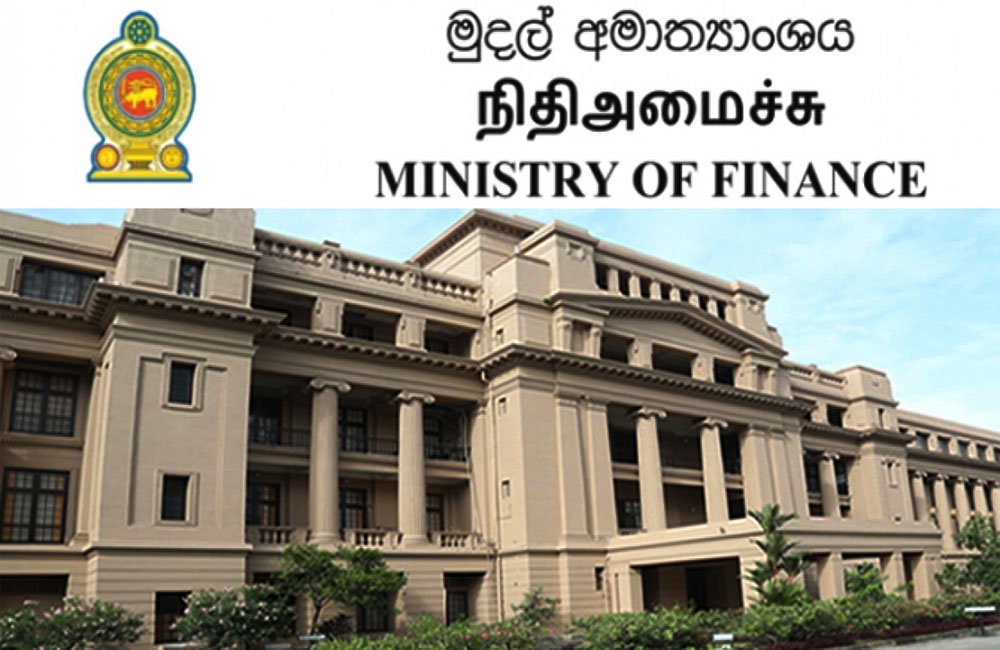
Finance Ministry announces State revenue enhancement methods
With several public and private sector establishments coming to a near standstill during COVID-19, the government has taken several revenue enhancement measures to achieve an income of around 9.5% of GDP in 2021, according to a Finance Ministry fiscal strategy report. To complement such a strategy, several measures have already been taken to address the concerns in revenue collection which is estimated to increase to LKR 1.65 trillion in 2021 from around LKR 1.36 trillion this year.
Revenue enhancement has been accompanied by a comprehensive strategy that interlinks tax policy reforms and revenue administration reforms, which have been dealt with by the Treasury effectively, a senior official said.
This includes combining several tax instruments (e.g. increasing the PAL rate and removing the NBT rate), simplification of the system of taxation by reducing the number of taxes to be paid such as NBT, PAYE and WHT.
Further, capacity enhancing measures in revenue administration have already commenced including the establishment of the Large Taxpayers Unit (LTU) at the Inland Revenue Department (IRD), and the introduction of risk-based audits.
The Integrated Treasury Management Information System (ITMIS) at the Treasury has commenced roll outs in 45 entities and it is expected to further expand to about 200 entities. The tax buoyancy is expected to be improved in the medium term.
The government has introduced measures such as an electronic tax filing system which makes it easier to pay taxes. Several taxes were removed to simplify the tax structure with the Economic Service Charge (ESC), Debt Repayment Levy (DRL) and Nation Building Tax (NBT) being removed.
The standard Corporate Income Tax (CIT) rate structure was reduced to 24% from 28%. The concessionary rate of 14% is applicable to the income from export of goods, tourism, education, healthcare, construction and agro-processing and 18% applicable on income from manufacturing.
The high tax rate of 40% continued to be applied on liquor, tobacco and betting and gaming, budget estimates showed.
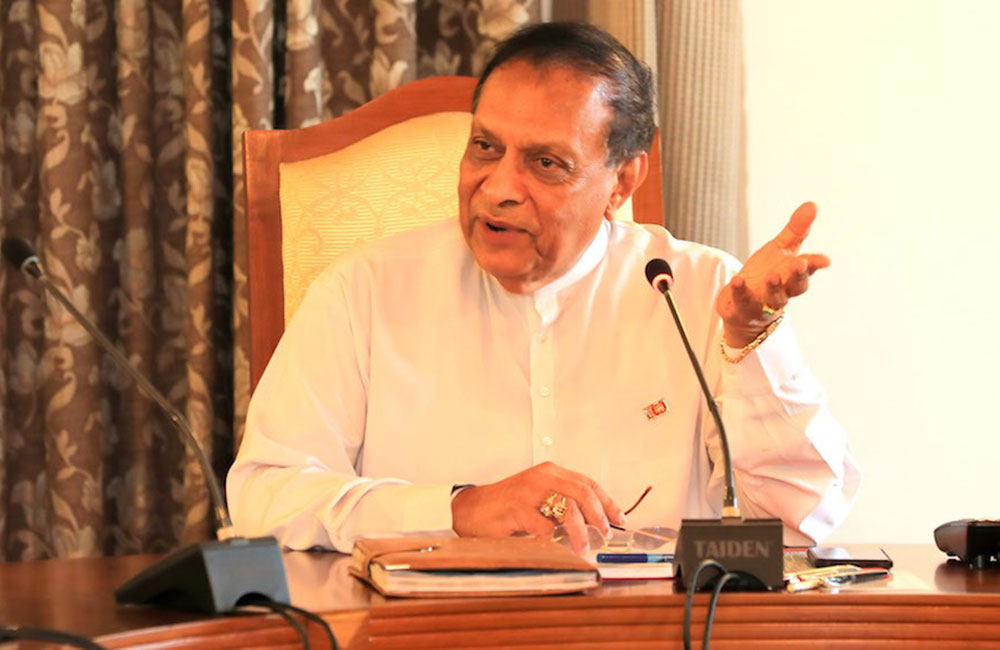
Even with unprecedented powers, Govt. unable to fulfil people's needs: Karu
"As the COVID-19 pandemic rages on, the whole society is under immense pressure today. The situation is deteriorating, especially in Colombo and in the Western Province. The country and her people are helpless. A top government official leading the efforts to control the pandemic says that the entire island has become a high-risk zone," Jayasuriya said.
Jayasuriya said that the people will have to make certain compromises as long as the government ensures their well being.
"What does this show? Have you ever heard of another country that sought solutions after shooting people who have contracted COVID-19?" the former Speaker inquired.
"Although the government touted a 'one country, one law' policy, the politician responsible for the destruction of the royal court of King Buwanekabahu is still at large. Another politician who publicly proclaimed that he will not permit anyone to touch a 'single hair' of the person responsible for the destruction of the royal court challenged the country's rule of law. What was clearly validated by that single incident? That the rule of law has been rendered helpless similar to the plight of the people?" he said.
While reiterating that the National Movement for a Just Society presented these facts with good intentions, they warned the government not underestimate the people of this country.
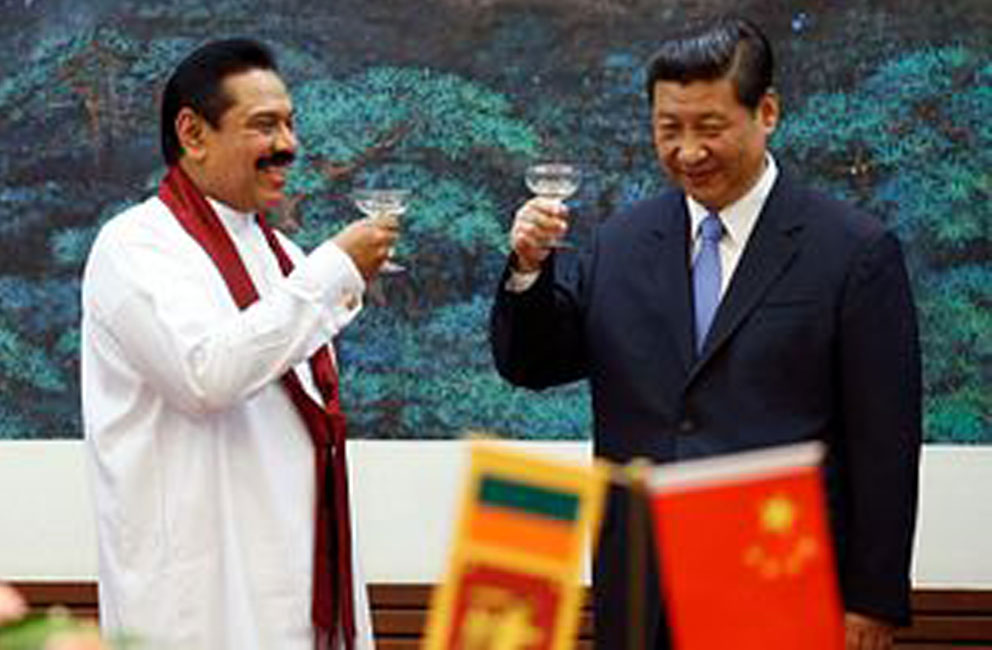
Sri Lanka and China decide to oppose unilateralism and hegemony
China stands ready to lift bilateral relations to a new high through close cooperation with Sri Lanka and promote the strategic synergy of the Belt and Road Initiative with Sri Lanka’s ‘Vistas of Prosperity and Splendour, Sri Lanka foreign ministry announced.
The partnership of the two countries will continue to support each other on issues involving each other’s core interests, unequivocally oppose unilateralism and hegemony, and jointly protect the common interests of developing countries.
Vice Foreign Minister of China, Ambassador Luo Zhaohui was quoted in the ministry release as saying that among the objectives of the Chinese government is to accelerate economic recovery, expand bilateral economic and trade exchanges, and advance industrial park, port, logistic and other industrial cooperation.
He was speaking at the 11th round of the diplomatic consultations between China and Sri Lanka virtually with Foreign Secretary Admiral Prof. Jayanath Colombage in attendance recently.
Chinese Ambassador to Sri Lanka, Qi Zhenhong and Charge d'Affaires of the Sri Lankan Embassy in Beijing, K. K. Yoganaadan also attended the consultations, respectively, from Colombo and Beijing.
China will take measures to tighten cultural and people-to-people ties, and step up exchanges in education, think tanks, tourism, environmental protection and other fields while strengthening law enforcement and security cooperation.
It will expand cooperation in counter-terrorism, Belt and Road security and combating of transnational crime, and jointly safeguard the stability of the two countries and the region.
China will continue to support each other on issues involving each other’s core interests, unequivocally oppose unilateralism and hegemony, and jointly protect the common interests of developing countries.
The two countries have agreed to strengthen law enforcement and security cooperation, expand cooperation in counter-terrorism, Belt and Road security and combating of transnational crime, and jointly safeguard the stability of the two countries and the region.
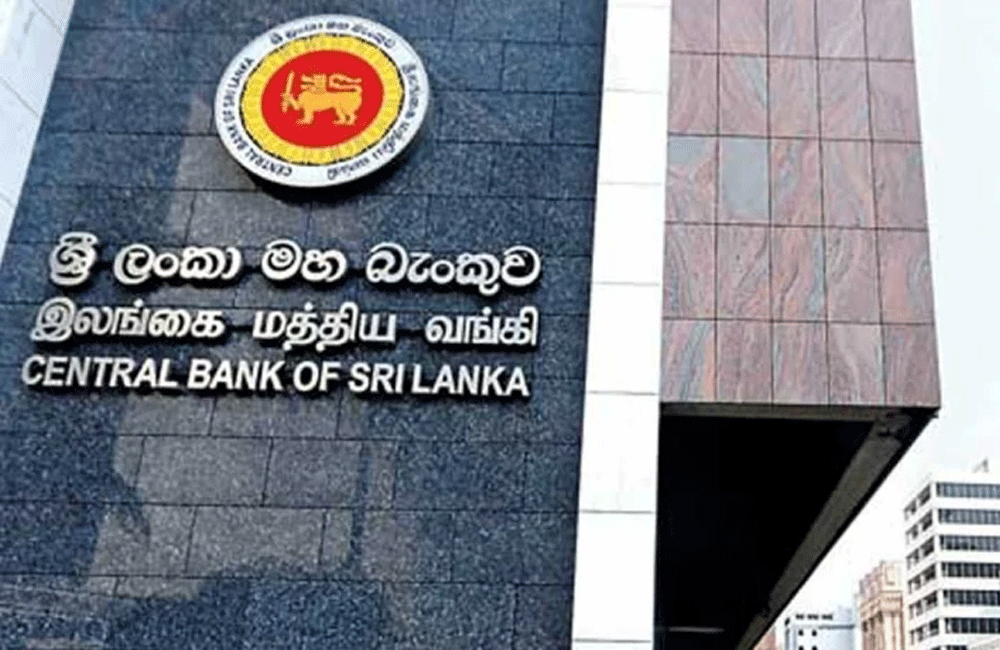
SDA deposits rises to $272 million in six months
"Considering the potential of SDAs to attract a substantial amount of foreign exchange into the country and the resultant positive impact on the foreign currency reserve position of the country and the overall economy, the government has decided to extend the validity period of opening SDAs up to 07 April 2021 on recommendation of the Monetary Board of the Central Bank of Sri Lanka," it added.
In addition, considering the favorable effects of retaining such foreign exchange within the country, GOSL has allowed SDA holders, who wish to keep maturity proceeds of SDAs in Sri Lanka beyond the designated date of maturity, to renew and continue SDAs as normal deposits with Authorized Dealers.
The funds held in SDAs so continued as normal deposits will be eligible only for the interest rates offered by the Authorized Dealers for normal term deposits of the respective banks. Upon maturity, such funds are;
- Freely convertible and repatriable outside Sri Lanka on any future date.
- Permitted to be transferred into an Inward Investment Account or a Personal Foreign Currency Account, if the account holder is eligible to open or currently maintain such an account.
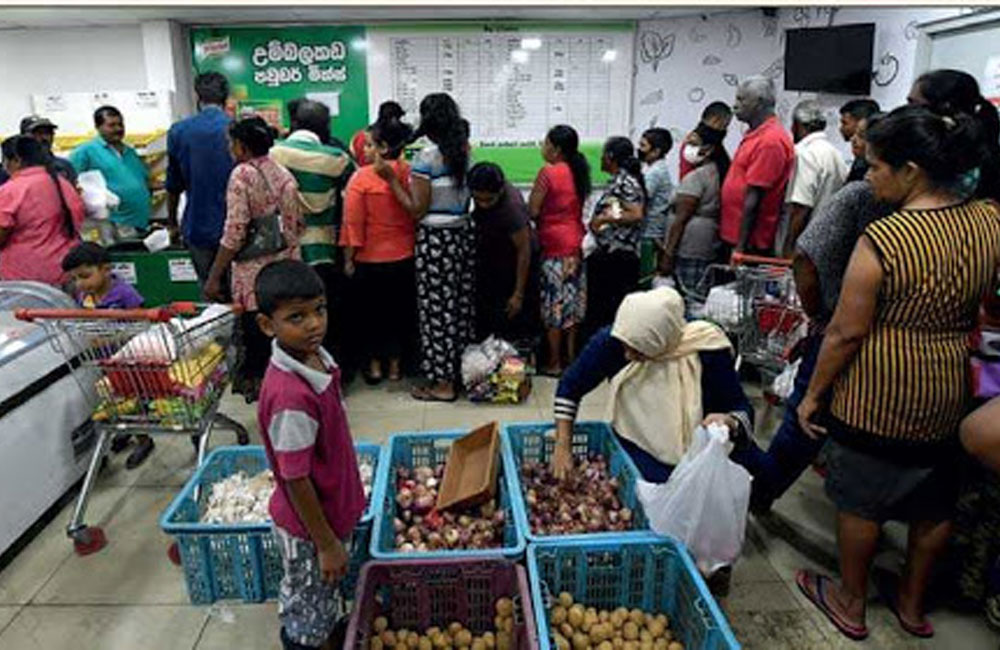
Mafia-controlled food market jacks up essential commodity prices
With due consideration to the current cost of living and difficulties associated with COVID-19, the government has removed import duties on essential commodities and fixed a maximum price on food items such as dhal, canned fish, onions and sugar.
The government's intention was to reduce the price of canned fish (large) to Rs. 200, a kilo of B/onions to Rs. 100, a kilo of sugar to Rs. 85 and a kilo of dhal at Rs. 150.
The present regime has set ceiling prices for several items, but nowhere in the market could those items be bought at the fixed price. Even government retail outlets like Sathosa seem to have adopted indirect means of profiteering.
Economic management under COVID-19 has created lucrative opportunities for profiteering by households under the unscrupulous traders and businessmen.
In the meantime, even the Central Bank, which expressed its concern about food-driven inflation but believes that the impact is limited, doesn’t want to talk about the need to remove domestic market imperfections
A mafia-controlled food market is a recipe for popular unrest especially when the new wave of the deadly virus is being mishandled by the Ministry of Health and is threatening the life and livelihood of the affected people hard hit by the impact of loss of employment.
It will be interesting to watch how the price of turmeric would swing when locally harvested products come to the market during the early months of 2021.
Market imperfections must be removed without considering its political benefits. Militarisation of administration is no solution to economic misery, economic analyst said.
Controlled prices can also lead to shortages, as producers lose incentive and ability to stock these products, economic think tank Advocata Institute said.
In addition, when imposed with no prior warning, price controls force smaller businesses to take losses, which can sometimes be inequitable, they pointed out.
Despite the good intentions behind this decision, it has the potential to make the situation worse.

Inland Revenue Department faces unprecedented cheque bouncing
Sri Lanka’s cheque bouncing due to insufficient funds in payees’ accounts has increased during the past few months as result of loss of income of the middle class, financial analysts claimed.
Cheques totalling a value of around LKR 3 billion that have been given to the Inland Revenue Department (IRD), have been returned from 2016 up to now owing to various reasons mainly Covid-19 crisis, the Inland Revenue Department (IRD) said.
According to official data, a total of 2,600 cheques have been returned within the first six months of this year.
The number of dishonoured cheques received by the Inland Revenue Department (IRD) had risen from 4494 recorded in 2015 to 8060 in June 2019, according to the auditor general’s report.
Taxpayers remit funds to the IRD’s Revenue Collection Account, and once the details on the payments made by taxpayers are furnished by banks, the tax files are updated.
“…it was observed that the internal control systems (of the IRD) for looking into the measures on their settlement and regarding follow up actions were not properly in operation,” the report read.
As a result, Value Added Taxes worth LKR 2.03 billion, Nation Building Taxes worth LKR 427.8 million, and Income Taxes worth LKR 317.8 million were among the revenue lost by the government.
Accordingly, the auditor general has recommended adopting money collecting methods such as bank drafts, other technical payment methods in addition to cheques to address this problem.
He has also recommended suspending bank accounts, suspending or taking over properties of taxpayers, and initiating court action relating to the dishonoured cheques exceeding LKR 500,000 in value.
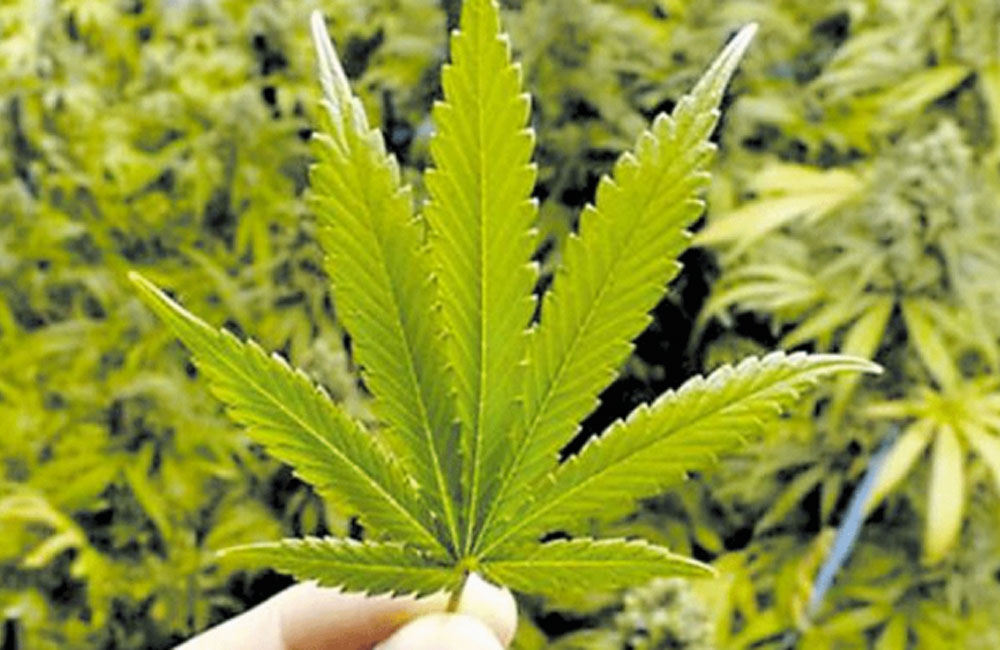
UN commission reclassifies cannabis, no longer considered risky narcotic
The United Nations (UN) Commission on Narcotic Drugs voted to reclassify cannabis (marijuana) Wednesday, taking it off the strict Schedule IV list that includes dangerous and highly addictive drugs such as heroin. The U.N. still deems cannabis a controlled substance. But the move, which the U.S. supported, could ease restrictions on research into marijuana's therapeutic use. The 53-member commission approved the change in a close vote, by 27-25, with 1 abstention. Russia was a vocal opponent of the move, calling cannabis "the most abused drug globally."
The U.N. vote follows guidance from the World Health Organization and its expert committee on drug dependence, which had recommended deleting "cannabis and cannabis resin" from Schedule IV of the 1961 Convention on Narcotic Drugs. The drug will now remain in Schedule I rather than appearing on both lists.
The vote had been closely followed by marijuana activists and the burgeoning cannabis industry, as it could bolster arguments for easing legal restrictions on marijuana and establishing consistent regulations.
Clearing the way for research
In its recommendation to the U.N. Commission on Narcotic Drugs, the WHO committee noted that cannabis can have adverse effects and cause dependence. But it also cited the drug's benefits in reducing pain and nausea, as well as easing symptoms of medical conditions such as anorexia, epilepsy and multiple sclerosis. And it noted that unlike opioids such as fentanyl, cannabis is not associated with a significant risk of death.
The committee said, "the inclusion of cannabis and cannabis resin in Schedule IV is not consistent with the criteria for a drug to be placed in Schedule IV."
The WHO committee also said that despite "limited robust scientific evidence on the therapeutic use of cannabis," the drug has been shown to be different from Schedule IV substances that have little or no therapeutic use.
Taking cannabis off of the list of most restricted substances, he added, means that the U.N. agrees with the WHO "that cannabis is not 'liable to produce ill-effects' on the scale of other drugs in Schedule IV, and that cannabis has significant potential therapeutic value."
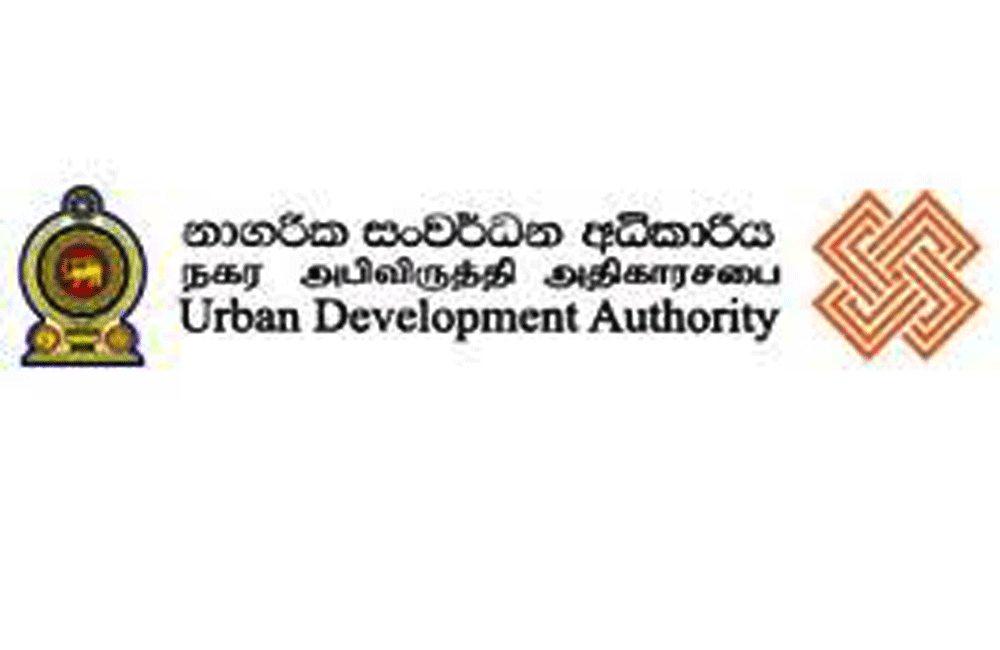
New UDA regulations detrimental to development
The Urban Development Authority (UDA) is seen as grabbing land and planning to take laws into their own hands via the introduction of new regulations, drawing concern from professionals and public interest activists.
The Sri Lanka Engineers Institution (SLEI) strongly objected last week to the attempts made by the UDA to gazette these regulations without entertaining representations from the engineering fraternity. The Institution of Engineers also raised objections.
The new regulations regarding land and building construction coming under the control of the UDA are confusing, a leading public interest activist in this field lamented.
He noted that those UDA regulations with regard to land division plans are impracticable and there was a hidden agenda of such plans.
It is almost the same set of regulations which was rejected by the professionals in 2019 under the previous government and it has been brought again, he alleged.
This was an attempt to divide government and private owned barren lands into blocks of lands countrywide for real estate development and construction of high-rise and other buildings, he disclosed.
He has explained these irregularities in a lengthy letter addressed to the UDA Chairman, Harshan De Silva and copied to Dr. P B Jayasundara, Secretary to the President, Gamini Senarath, Secretary to the Prime Minister and Nimal Perera, Secretary to the Ministry of Urban Development and Housing,
In this letter, the public interest activist, who requested anonymity, stated that there are regulative provisions to execute agreements by the UDA and the National Physical Planning Department (NPPD).
These regulative provisions are applicable countrywide, he pointed out.
The UDA has made an attempt to become the one and only regulator while ignoring the available legal enactments institutions by introducing new regulations which will be gazetted soon, he warned.
The regulative clauses have been drafted without any prerequisites, standards and checks and balances, he said, adding that those are nothing but clear maximization of “corruption” along with the “legalisation” of unofficial corrupt practices. The question of credibility of the new regulations is more serious as the procedure itself is geared to bring back the previous government agendas and thereby fulfill the needs of the vested parties and to result in serious losses to the country, he emphasised
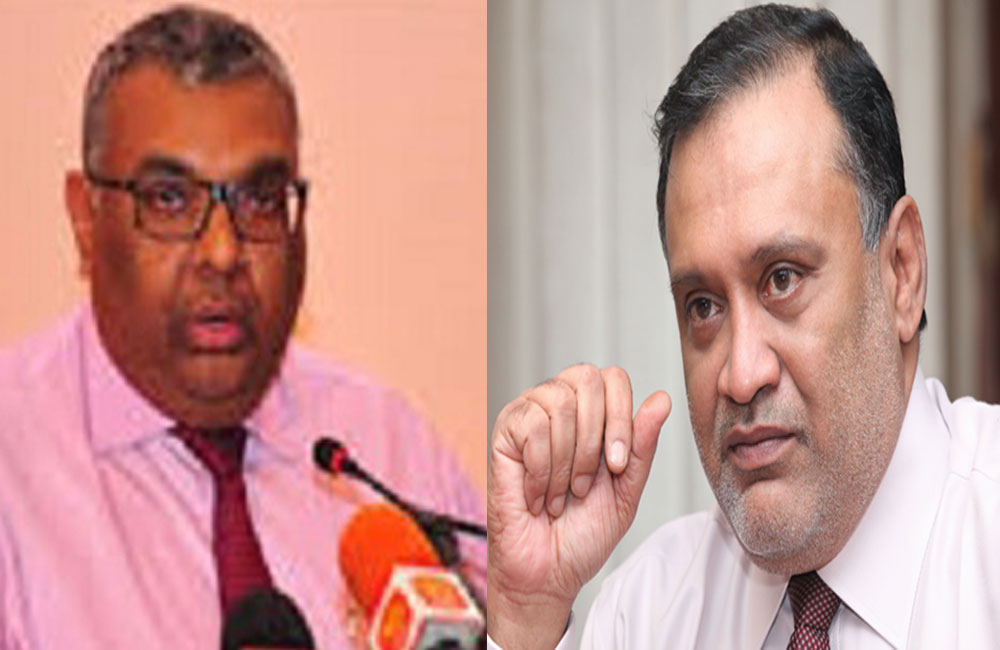
Two high profile heads of public institutions tender resignations
Two High profile heads of public institutions have resigned creating confusion on the immediate future of the country’s export and investment promotion secors, several imminent financial analysts claimed.
They added that the island nation is now moving towards economic dictatorship or one man show at a time when economic challenges need to be jointly managed by the private and public sectors, they pointed out.
The resignation of two leading private sector giants, who tried to move Sri Lanka beyond the devastating impact of COVID-19 and towards people-centric development, was a great loss for the country, they added.
The Export Development Board (EDB) Chairman Prabhash Subasinghe has resigned from his post with immediate effect. This is the second high-profile resignation in the state sector reported this week.
He assumed duties in December 2019 and was charged with the task of strengthening the country's export sector.
Subasinghe has stated that he accepted the post of Chairman for a period of one year only. Therefore, his resignation corresponded with his intention to devote more time to his personal business, sources said.
He said that he was able to do a significant service to exporters during his one year tenure as Chairman and that he is pleased to be able to do such a service even in the midst of the COVID19 epidemic.
BOI head resigns!
Meanwhile, top corporate leader Susantha Ratnayake, who served as the Chairman of the Board of Investment (BOI), also announced his resignation several days ago.
It is learnt that Ratnayake has quit the post citing undue interference from a “higher authority”. However, he has told the media that the resignation was due to personal reasons and he took up the post only for a year.
The appointment of Susantha Ratnayake was one of the first appointments made by President Gotabaya Rajapaksa after assuming office.
Ratnayake has held a number of high-ranking positions in the corporate sector including the Chairmanship of Sri Lanka's premier blue chip company, John Keells Holdings.
With over 30 years of management experience, Ratnayake served as Chairman and CEO of John Keells Holdings PLC from January 2006 to December 2018. He has been a member of its Board of Directors since 1992/93.
In addition, a number of institutions and companies, including the Ceylon Chamber of Commerce and the Ceylon Tea Board, have been successful under his guidance in recent times.

Employers express concerns over budget proposals
Business owners has raised concerns over the compulsory retirement age for private sector employees by amending the Employees’ Provident Fund (EPF) Act, the introduction of a Social Security Fund as well as implementing a daily wage of LKR 1,000 for the plantation workers.
The Employers Federation of Ceylon (EFC), the unofficial trade union of employers, in a circular to members noted that the EFC's policy relating to determining retirement age of private sector employees as well as wages are well established and considers many factors including sustainability of companies. “For instance, it has been our position that the issue of retirement age should be determined by parties and agreed contractually, allowing many related issues such as affordability, ability to work, health and safety of employees as well as matters relating to their wishes – e.g. on how superannuation benefits should be enjoyed – to be considered,” it said.
The EFC said it long opposed mandating of wages for the private sector – other than determining minimum rates of wages, again through ‘tri-partite processes’ – as it cuts across the principles of determining wages based on market forces and employee involvement including Collective Bargaining. “The workers of Regional Plantation Companies (RPCs) – in respect of whom the authorities are trying to intervene in this instance– have long standing collective agreements in place which are applicable for the entire industry and considered as a ‘model’ by the International Labour Organization.
Whilst such matters are best addressed by the stakeholders themselves, ad hoc interventions are likely to have serious consequences for all employers and the national economy, especially at times like the present,” it said.
It sought an urgent meeting of the tripartite body – the National Labour Advisory Council to discuss these contentious proposals
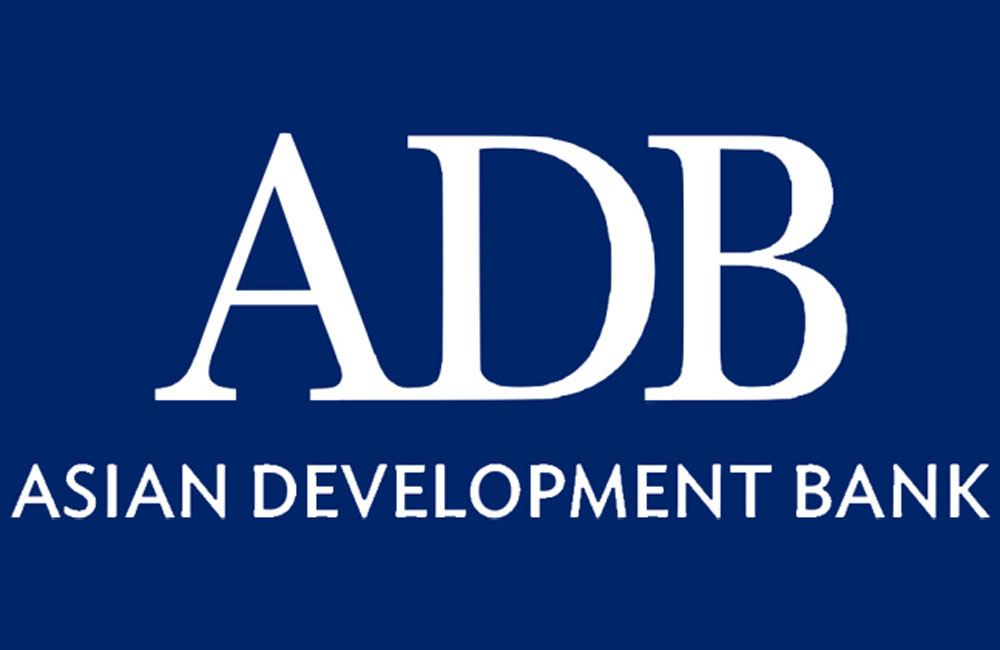
$400 million ADB loan for secondary education reforms
Sri Lanka has received approval for a USD 400 million loan from the Asian Development Bank (ADB) to support the transformation of Sri Lanka's secondary education system to align with the demand for highly skilled and agile workers who can compete in a rapidly changing global economy.
Sri Lanka aspires to be an advanced knowledge economy and has targeted education and skilled labor as national priorities.
The Secondary Education Sector Improvement Program will support reforms under the government’s General Education Sector Development Plan, 2020–2025, particularly on upper secondary education. The program will benefit about 953,000 students annually, with skills that will benefit successive generations of students.
The program will equip the young population with knowledge and skills in science, technology, engineering, and mathematics (STEM), and commerce, which are fields of high economic relevance for Sri Lanka.
It will enhance readiness for further education in STEM fields and foster competencies for higher productivity and adaptability.
To achieve this, the program will reform the curricula, instruction, and assessment systems to focus on practical application of knowledge and integrate cognitive and socio-emotional skills ADB said .
The program also focuses on improving teaching quality and teacher training given the importance of quality of teaching and method of instruction on learning.
More than 47,000 upper secondary education teachers will be trained on inquiry-based and interactive learning approaches to increase student interest and engagement with subject content and inspire a love of learning.
“A knowledgeable, agile, and skilled workforce that can leverage technology transfers and steer innovations could support Sri Lanka’s economic diversification and put Sri Lanka on a higher growth path,” said ADB Principal Social Sector Specialist for South Asia Uzma Hoque.
“The aim is to equip students with market-relevant skills and foster competencies that allow them to think critically, apply what they learn and adapt, which are key traits needed to survive and thrive in the modern world of work.”
Learnings from the current situation under the COVID-19 pandemic will be turned into an opportunity for reforms.
The curricula and pedagogy will introduce innovative technology-based teaching and learning approaches and multiple modes of delivery of education to build resilience against future emergencies.
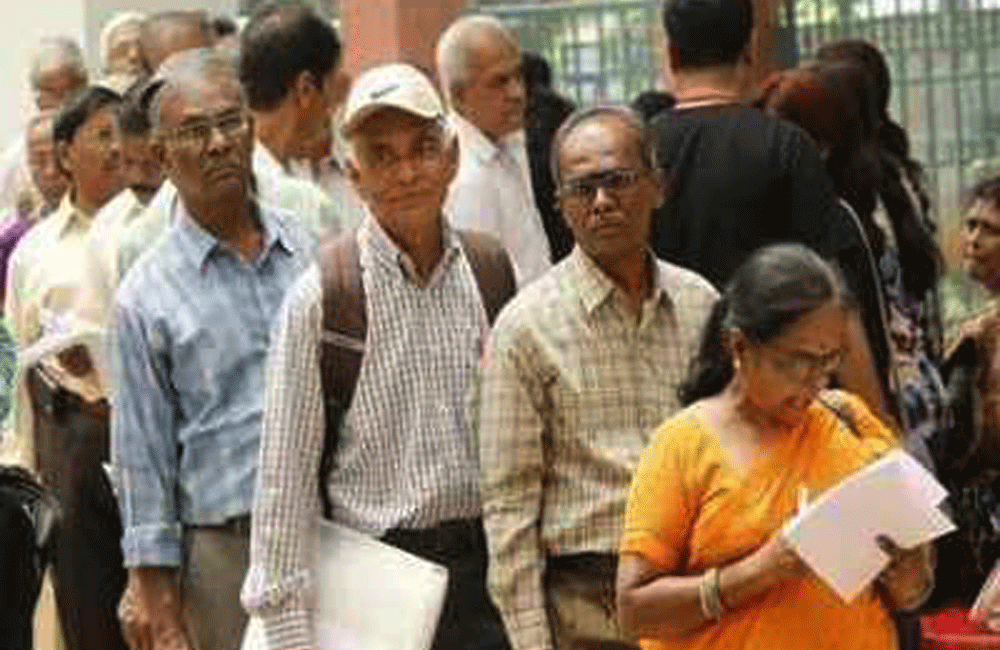
Amendment to EPF Act to extend the retirement age opens can of worms
The government’s proposal to amend the Employees’ Provident Fund (EPF) Act to extend the retirement age of private sector employees both men and women up to 60 years has brought several crucial issues into the limelight.
Finance Minister and Prime Minister Mahinda Rajapaska in his 2021 budget speech said the retirement age of private sector employees would be raised to 60 years based on the life expectancy which is 72 years for men and 77 years for women.
However, it was not clear as to whether the private sector employees are allowed to withdraw their EPF money after the previous retirement age of 55 years if they opt for early retirement.
Although it is a good proposal for the private sector workers, it should be made optional for them obtaining early retirement according to their wish without blocking it until they reach 60 years of age, Anton Marcus – Joint Secretary of the Free Trade Zone and General Services Employees Union told the Business Times.
This proposal should not be another attempt to use private sector employee’s life savings by the state to borrow funds at lower rates to bridge the deficit or any other purposes, he added.
He said that this matter will be brought to the notice of the next Labour Advisory Council (NLAC) meeting which is the tripartite apex body to discuss policy-related labour matters and advise the Minister of Labour.
This move will help the government to block Rs. 500-600 billion of refund money in the EPF to utilise it for public affairs, a financial analyst said.
It could be used to borrow funds from the EPF at low-interest rates, and invest them as well as utilising it for debt repayments, he added.
The EPF represents the largest source of funds for government domestic borrowing, exceeding even the amounts contributed by savings institutions and commercial banks.
As the increase in the working age population and thus the workforce and the growth of the formal sectors result in increased contributions to the Fund, the incentive to remove political interference with the EPF remains low.
As a result, the defined contribution features of the EPF have been seriously undermined and a widening gap has emerged between the notional and actual performance of the EPF over time, an Economic Analysis report revealed.
Earlier there were attempts to compulsorily retire workers at 55 years instead of giving extensions of service till 60 years which was once, the practice.
Page 386 of 659